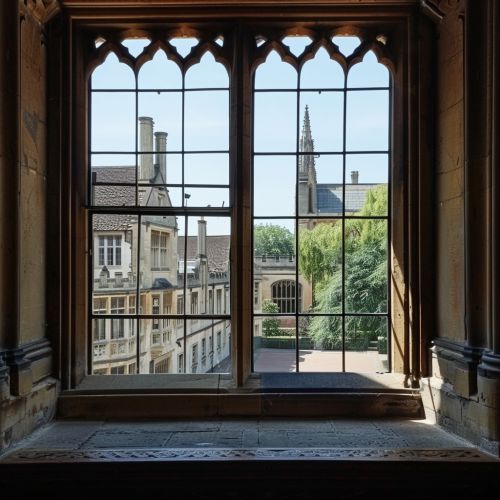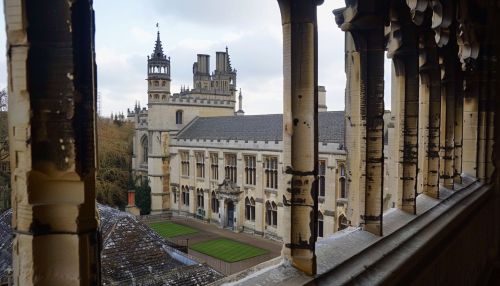List of Cambridge University Colleges
Overview
Cambridge University, officially known as the University of Cambridge, is a collegiate public research university in Cambridge, England. It is the second-oldest university in the English-speaking world and the world's fourth-oldest surviving university. The university is made up of 31 constituent colleges, each with its own unique history, architecture, and traditions. This article provides a comprehensive list of these colleges, along with detailed information about their foundation, notable alumni, and unique characteristics.
List of Colleges
Christ's College
Founded in 1505 by Lady Margaret Beaufort, Christ's College is one of the older colleges in the university. It has produced notable alumni such as Charles Darwin, the naturalist who proposed the theory of evolution, and John Milton, the famous English poet.


Churchill College
Churchill College was established in 1960, named after Sir Winston Churchill, with the aim of specialising in science and technology. It has the largest college campus in Cambridge and houses the Churchill Archives Centre, a repository for Winston Churchill's papers and other notable figures in modern world history.
Clare College
Established in 1326, Clare College is the second-oldest college in Cambridge. It is known for its chapel choir and for its significant contributions to the field of music, with alumni such as the composer John Rutter.
Corpus Christi College
Founded in 1352, Corpus Christi College is one of the ancient colleges in the university. It is unique in being the only college founded by Cambridge townspeople.
Downing College
Downing College, established in 1800, is known for its legal studies and its neo-classical architecture. Its alumni include Sir John Kendrew, a Nobel laureate in Chemistry.
Emmanuel College
Founded in 1584, Emmanuel College is known for its large wooded grounds, which include a pond and a swimming pool. Notable alumni include John Harvard, the founder of Harvard University.
Fitzwilliam College
Fitzwilliam College was founded in 1869 as a non-collegiate institution, providing education for students who could not afford to belong to a college. It became a full college of the university in 1966.
Girton College
Girton College was established in 1869 as the first women's college in Cambridge. It became coeducational in 1976. It is located furthest from the city centre among all the colleges.
Gonville and Caius College
Founded in 1348, Gonville and Caius College is one of the oldest and largest colleges in the university. It has produced numerous notable alumni, including 14 Nobel laureates.
Homerton College
Homerton College was established in 1768, initially as a training institution for dissenting religious ministers. It became a full college of the university in 2010, making it the newest college.
Hughes Hall
Hughes Hall is a constituent college of the university that was founded in 1885. It is distinctive for being a mature college, accepting only students who are aged 21 or over.
Jesus College
Jesus College was established in 1496 on the site of the twelfth-century Benedictine nunnery of St Mary and St Radegund. It is known for its large grounds, which include a nature reserve.
King's College
Founded in 1441 by King Henry VI, King's College is famous for its chapel and its choir. The King's College Chapel is considered one of the greatest examples of late Gothic English architecture.
Lucy Cavendish College
Lucy Cavendish College was founded in 1965 and is named after the suffragist Lucy Cavendish. It is unique in Cambridge as it accepts only female students aged 21 or over.
Magdalene College
Magdalene College, pronounced 'Maudlyn', was founded in 1428. It is one of the university's older colleges and is located on the river Cam.
Murray Edwards College
Murray Edwards College, formerly known as New Hall, was founded in 1954. It is one of the three colleges in Cambridge that admit only women.
Newnham College
Newnham College was established in 1871 as the second women's college in Cambridge. It has a tradition of academic excellence and has produced numerous notable alumni.
Pembroke College
Founded in 1347, Pembroke College is the third-oldest college of the university. It has a tradition of excellence in the humanities, particularly in English literature.
Peterhouse
Peterhouse, established in 1284, is the oldest college of Cambridge University. It is known for its small size and its tradition of academic excellence.
Queens' College
Queens' College was founded in 1448 by Queen Margaret of Anjou, and refounded in 1465 by Queen Elizabeth Woodville. It is unique in being the only college to be named after two queens.
Robinson College
Robinson College was established in 1977, making it one of the newest colleges in the university. It is known for its modern architecture and its commitment to accessibility and diversity.
Selwyn College
Founded in 1882, Selwyn College is named after Bishop George Augustus Selwyn. It is known for its friendly and inclusive community.
Sidney Sussex College
Sidney Sussex College was founded in 1596. It is known for its intimate size and its strong sense of community.
St Catharine's College
Established in 1473, St Catharine's College is known for its open court that faces Trumpington Street.
St Edmund's College
St Edmund's College was founded in 1896. It is one of the mature colleges of the university, accepting only students aged 21 or over.
St John's College
St John's College was founded in 1511 and is one of the largest colleges in the university. It is known for its wealth and its choir.
Trinity College
Founded in 1546 by King Henry VIII, Trinity College is the largest college in Cambridge. It has produced more Nobel laureates than any other college in the university.
Trinity Hall
Trinity Hall, established in 1350, is one of the older colleges in the university. It is known for its strength in law and its intimate size.
Wolfson College
Wolfson College was founded in 1965. It is distinctive for being a mature college, accepting only students who are aged 21 or over.
